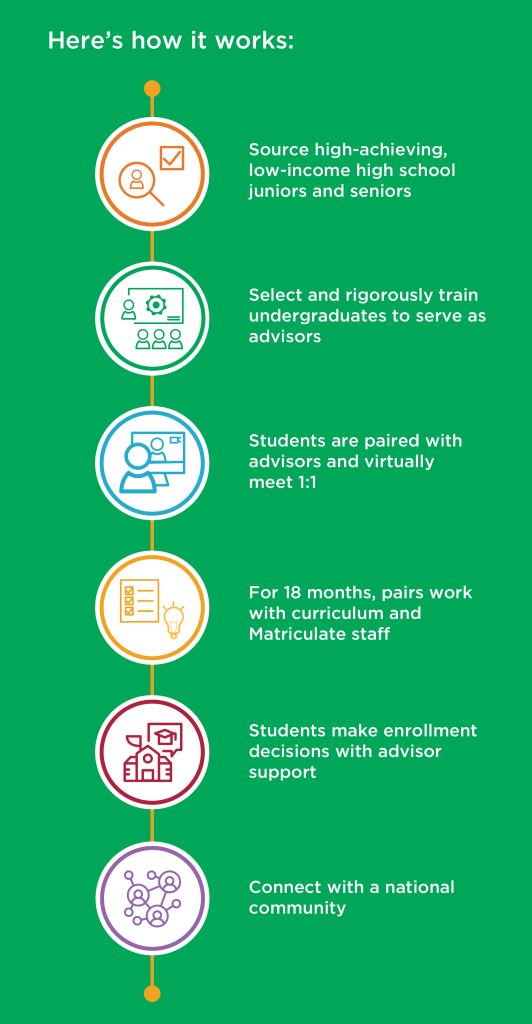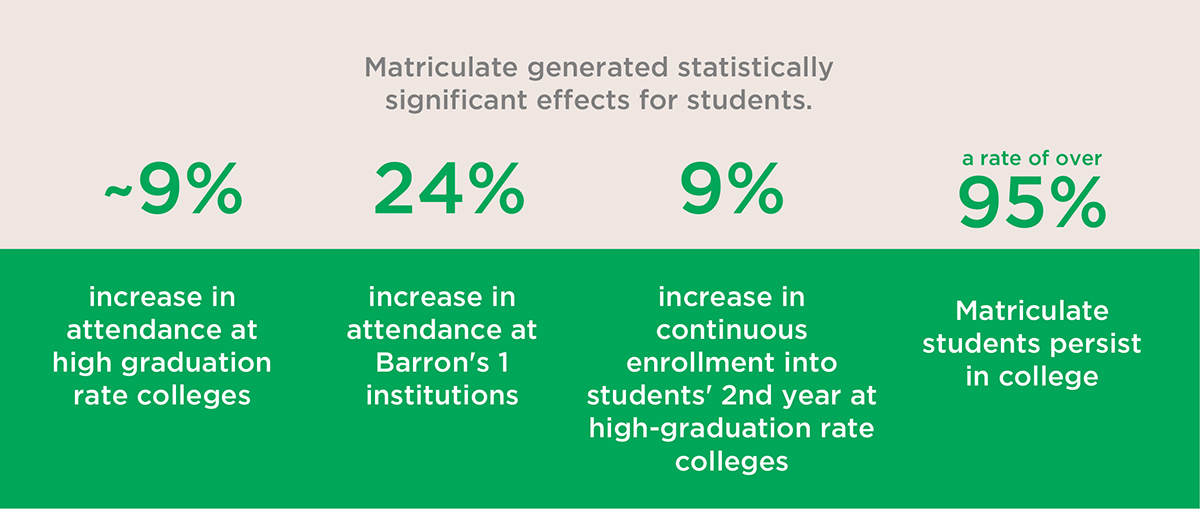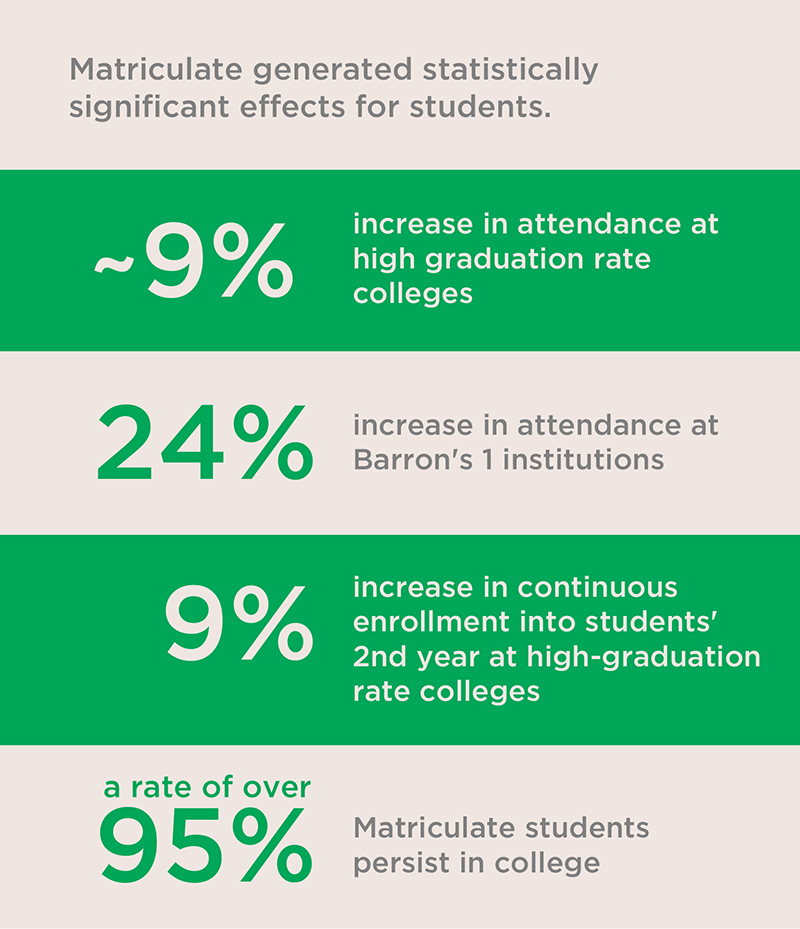Matriculate’s mission is to empower high-achieving, low-income high school students to make the leap to top colleges and universities.
THE MODEL: Since 2014, Matriculate has provided free, virtual college advising to more than 20,000 high school students across the country. Leveraging technology, Matriculate has trained over 4,700 mission-driven undergraduates to serve as virtual advisors. Over the course of around 18 months, Matriculate high school students work one-on-one with their highly trained, near-peer advisors through a 31-step curriculum to build a balanced list, apply for financial aid, and ultimately enroll in college.


THE STUDY
Through Bloomberg Philanthropies’ CollegePoint Initiative, Matriculate participated in a randomized controlled trial (RCT). As the gold standard of impact evaluation, this RCT measured the unique effect of the Initiative and that of individual advising organizations, including Matriculate, on student outcomes. The study compared college enrollment quality and persistence between:
– Students in the high school class of 2018 through 2020, and…
– A randomly selected control group that:
1. Applied to receive advising and had the same qualifications and background, and
2. Did not receive advising from Matriculate or other CollegePoint advising organizations.
THE RESULTS


1Sullivan, Zach, Ben Castleman, Gabrielle Lohner, and Eric Bettinger. (2021). College Advising at a National Scale: Experimental Evidence from the CollegePoint initiative. (EdWorkingPaper: 19123). Retrieved from Annenberg Institute at Brown University: https://doi.org/10.26300/s323-5g64
2Barr, Andrew C., and Benjamin L. Castleman. (2021). The Bottom Line on College Advising: Large Increases in Degree Attainment. (EdWorkingPaper: 21-481). Retrieved from Annenberg Institute at Brown University: https://doi.org/10.26300/xdsa-5e22
Matriculate © 2025 All rights reserved.
Matriculate
25 Broadway 12th Fl
c/o Teach for America
New York, NY 10004
